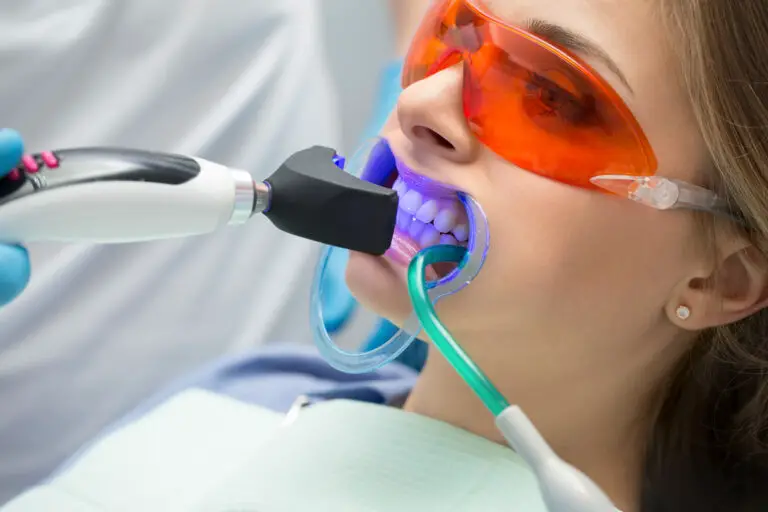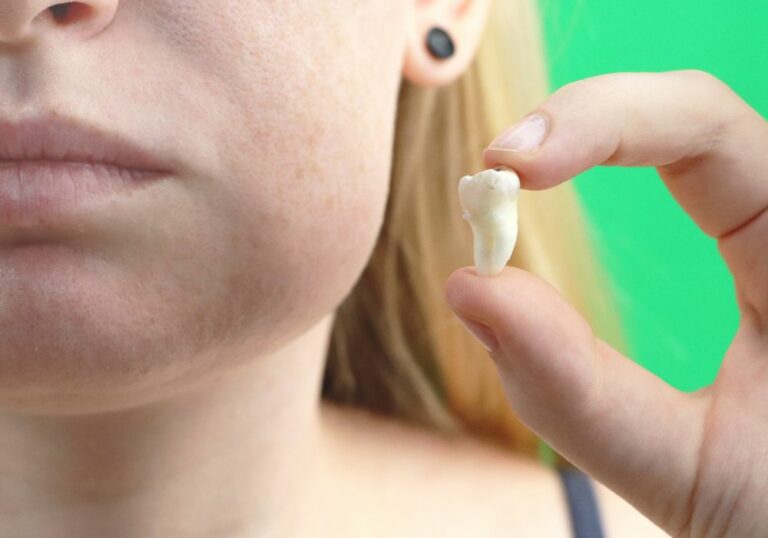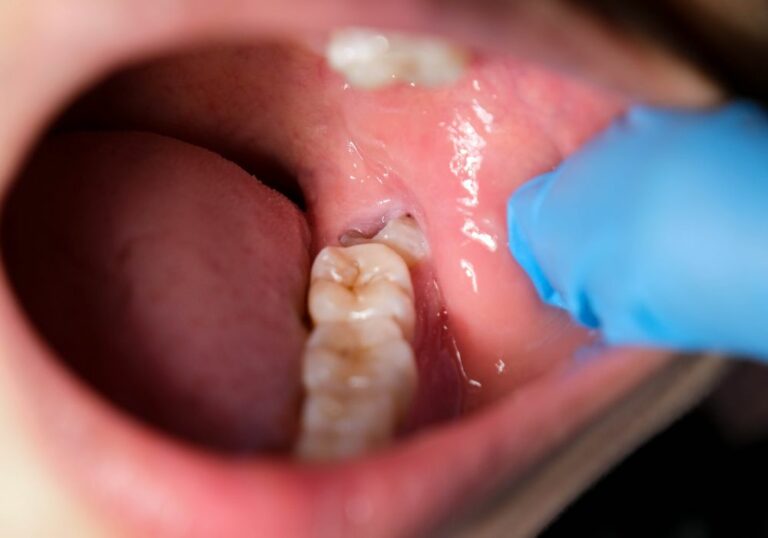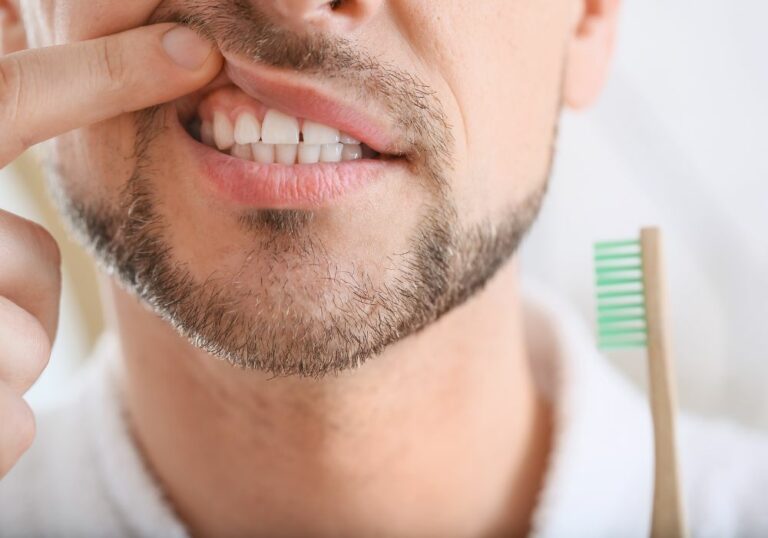Losing teeth can be a common occurrence as we age, but have you ever wondered what happens to your jaw when you lose teeth? The answer may surprise you. When you lose a tooth, the surrounding bone and gum tissue no longer have the stimulation they need to maintain their density and structure. Over time, this can lead to bone loss and changes in the shape of your jaw.
This bone loss can have a number of consequences for your oral health. For example, it can make it more difficult to replace missing teeth with dental implants or other restorative procedures. Additionally, changes in the shape of your jaw can lead to problems with your bite, which can cause pain and discomfort when eating or speaking. Understanding what happens to your jaw when you lose teeth can help you take steps to prevent these issues and maintain good oral health.
The Role of Teeth in Jaw Health
Your teeth play a crucial role in maintaining the health and structure of your jaw. They help stimulate the bones in your jaw, which in turn promotes bone growth and strength. When you lose a tooth, however, this stimulation is lost, and the bone in that area can begin to deteriorate.
The roots of your teeth are embedded in your jawbone, and when you chew or bite down on something, the force is transferred through the tooth and into the bone. This force stimulates the bone cells to grow and strengthen, keeping your jawbone healthy and strong.
When you lose a tooth, this force is lost, and the bone in that area can begin to atrophy. Over time, this can cause your jawbone to weaken and shrink, which can lead to a number of problems such as:
- Shifting of teeth
- Changes in your bite
- Difficulty chewing
- Jaw pain
- Changes in your facial appearance
To prevent these issues, it’s important to replace any missing teeth as soon as possible. This can be done with a variety of options, such as dental implants, bridges, or dentures. By replacing your missing teeth, you can help maintain the health and structure of your jaw, and avoid any potential complications down the line.
In addition to replacing missing teeth, there are other steps you can take to promote the health of your jaw. This includes maintaining good oral hygiene, eating a healthy diet, and avoiding habits such as clenching or grinding your teeth. By taking these steps, you can help ensure that your jaw remains healthy and strong for years to come.
Consequences of Tooth Loss on the Jaw
Losing teeth can have a significant impact on your jawbone, leading to various complications that can affect your oral health and overall well-being. Here are some of the consequences of tooth loss on the jaw:
Bone Resorption
When you lose a tooth, the bone that supported it no longer receives stimulation from the tooth root. As a result, the bone may begin to resorb or shrink over time. This process is known as bone resorption, and it can cause the jawbone to weaken and become less dense.
Bone resorption can also lead to problems if you want to get dental implants in the future. Dental implants require a certain amount of bone density to be successful, and bone resorption can make it difficult or impossible to support an implant.
Facial Structure Changes
The teeth play an essential role in supporting the facial structure. When you lose teeth, the surrounding bone may shrink, causing your face to look sunken or hollow. This can make you look older than you are and affect your self-esteem.
Bite Misalignment
The teeth work together to create a balanced bite. When you lose a tooth, the surrounding teeth may shift to fill the gap, causing your bite to become misaligned. This can lead to problems like jaw pain, headaches, and difficulty eating.
If you have lost teeth, it’s essential to replace them as soon as possible to prevent further complications. Dental implants, bridges, and dentures are all options for replacing missing teeth and restoring your oral health.
Preventing Jaw Damage After Tooth Loss

Losing teeth can cause a significant change in your jawbone structure. The bone that once supported the tooth starts to shrink, which can lead to a variety of dental problems. Fortunately, there are several options available to prevent or minimize jaw damage after tooth loss.
Dental Implants
Dental implants are one of the most popular options for replacing missing teeth. They are artificial tooth roots that are surgically placed into the jawbone. Implants provide a stable foundation for replacement teeth and help prevent bone loss. The implant fuses with the jawbone, which stimulates bone growth and prevents bone resorption.
Dentures
Dentures are removable appliances that replace missing teeth. They can help prevent further jawbone loss by providing support to the remaining teeth and gums. However, dentures do not stimulate bone growth, so bone loss may still occur over time. Regular dental checkups are important to ensure the dentures fit properly and to detect any potential problems.
Bone Grafting
Bone grafting is a surgical procedure that involves adding bone to the jawbone to support dental implants or prevent further bone loss. The bone can be taken from another part of your body or from a donor. Bone grafting can help restore bone density and prevent the jawbone from shrinking.
In conclusion, losing teeth can have a significant impact on your jawbone structure. However, there are several options available to prevent or minimize jaw damage after tooth loss. Dental implants, dentures, and bone grafting are effective ways to restore your smile and prevent further bone loss. Regular dental checkups are important to ensure the health of your teeth and jawbone.
Understanding Jaw Atrophy
When you lose a tooth, the bone that supported the tooth root will begin to resorb or dissolve. This process is known as jaw atrophy or bone loss. As a result, the bone in your jaw can shrink and become weaker over time.
The longer you go without replacing a missing tooth, the more bone loss you are likely to experience. This can cause a variety of problems, including changes in your facial appearance and difficulty eating and speaking.
Jaw atrophy can also make it more challenging to receive dental implants or other tooth replacement options in the future. If you are interested in dental implants, your dentist may recommend a bone graft to build up the bone in your jaw before the implant procedure.
To prevent jaw atrophy from occurring, it’s essential to replace missing teeth as soon as possible. Dental implants are an excellent option for many people, as they mimic the natural tooth root and help stimulate the bone in your jaw.
Other tooth replacement options, such as dentures or bridges, may also help prevent further bone loss. However, they do not provide the same level of stimulation to the jawbone as dental implants.
In summary, jaw atrophy is a common problem that occurs when you lose a tooth. To prevent further bone loss and maintain good oral health, it’s essential to replace missing teeth as soon as possible. Dental implants are an excellent option for many people and can help stimulate the bone in your jaw to prevent further atrophy.
Impact on Overall Health

Losing teeth can have a significant impact on your overall health. Here are some ways in which tooth loss can affect your health:
- Chewing difficulties: When you lose teeth, it becomes difficult to chew food properly, which can lead to digestive problems. You may also avoid eating certain foods that require more chewing, which can result in a limited and unhealthy diet.
- Bone loss: Teeth provide stimulation to the jawbone, which helps keep it healthy and strong. When teeth are lost, the jawbone can begin to deteriorate, leading to bone loss and changes in facial appearance.
- Gum disease: Tooth loss can increase the risk of gum disease, which can lead to further tooth loss and other health issues.
- Speech problems: Missing teeth can affect speech, causing a lisp or difficulty pronouncing certain words.
- Self-esteem: Tooth loss can have a significant impact on self-esteem and confidence, leading to social anxiety and isolation.
To prevent these health problems, it is important to replace missing teeth as soon as possible. Dental implants, dentures, and dental bridges are all effective options for restoring your smile and maintaining your overall health.
Frequently Asked Questions
What are the side effects of having no teeth?
When you lose teeth, it can have a significant impact on your oral health. The side effects of having no teeth include difficulty chewing, speaking, and smiling. You may also experience jaw pain, headaches, and facial muscle stiffness.
Can losing teeth affect your jaw bone?
Yes, losing teeth can affect your jaw bone. When you lose a tooth, the jaw bone that once supported it no longer receives stimulation from the tooth root. This can cause the bone to deteriorate over time, leading to further tooth loss and changes in your facial structure.
How can missing back teeth be replaced?
Missing back teeth can be replaced with dental implants, bridges, or dentures. Dental implants are a popular option for replacing missing teeth because they provide a permanent solution that looks and feels like natural teeth.
Can one missing tooth change your facial appearance?
Yes, one missing tooth can change your facial appearance. When you lose a tooth, it can cause your other teeth to shift, leading to changes in your bite and facial structure. This can cause your face to appear sunken or aged.
Will dental implants help to lift the face?
Dental implants can help to lift the face by replacing missing teeth and restoring the natural contours of your jaw and cheeks. By providing support to your facial muscles, dental implants can help to prevent bone loss and maintain your youthful appearance.
What are the signs of jaw bone deterioration?
The signs of jaw bone deterioration include pain or tenderness in the jaw, difficulty chewing or speaking, loose teeth, and changes in your bite or facial structure. If you are experiencing any of these symptoms, it is important to see a dentist as soon as possible to prevent further damage.






